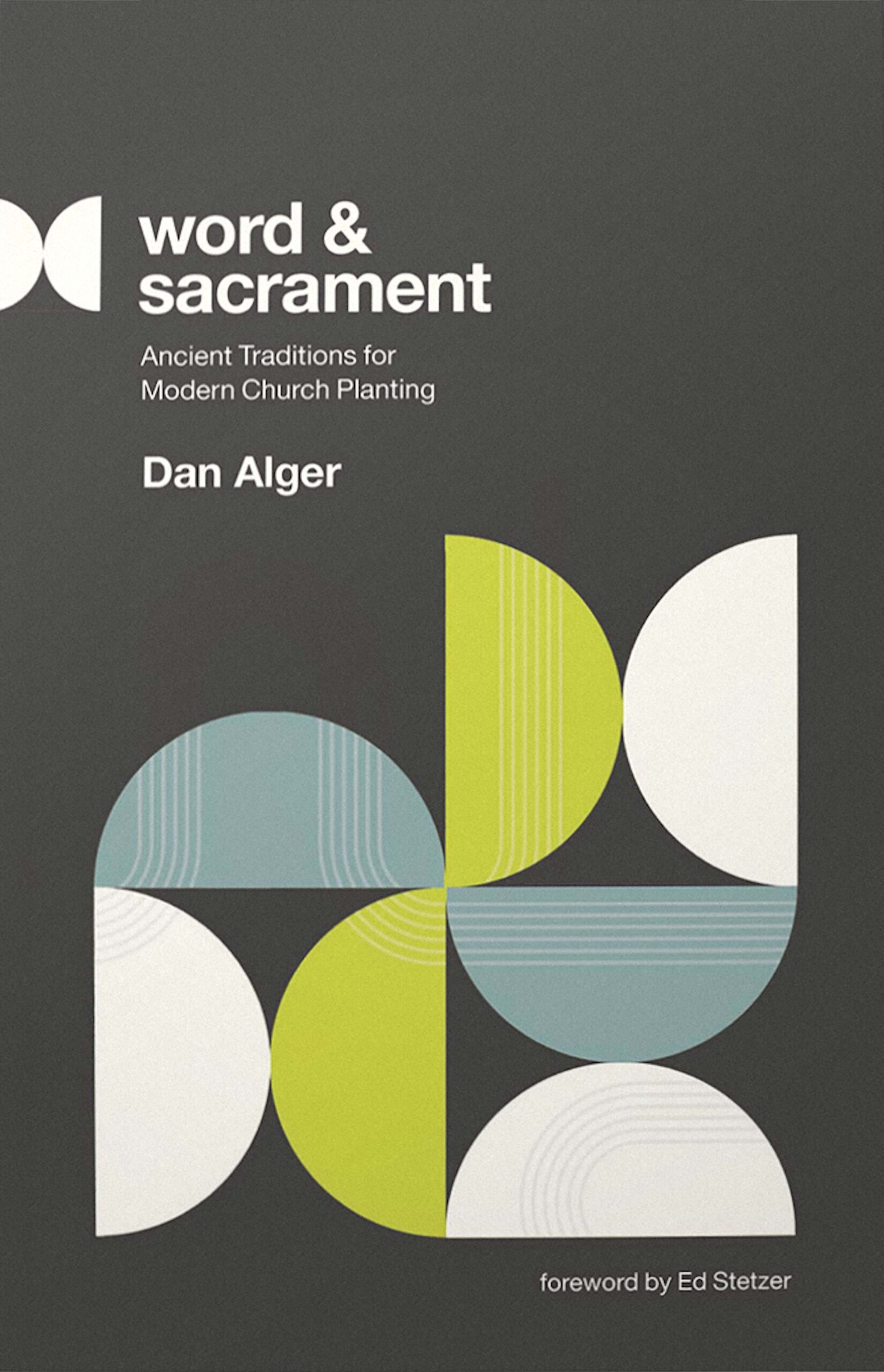While much of church planting today is approached as a new, innovative effort, church leaders can take comfort in the truth that they are simply stewards of what the faithful church has been doing for millennia. In Word and Sacrament: Ancient Traditions for Modern Church Planting, Anglican church planting veteran Dan Alger shows pastors how the rich traditions of liturgical worship are a gift to the work of starting new churches.
In the following interview, Dan shares why the ancient traditions of the church remain an important part of church planting today.
Q: Most contemporary church planting is approached as an endeavor that needs to be new and innovative. However, you believe it is important to go back to the ancient roots and traditions of the church. Why are the ancient traditions of the church relevant to today’s culture?
As church planters, it is easy to forget that we are not the first Christians who have ever lived. Most church planters are self-starting, bold, creative, leaders, and they are gifts to the church. The flip side of that particular gifting, however, can lead a planter to lean too much on his own ability. The church plant that has its roots in the shallow soil of our own experience and giftedness is subject to being led astray by a very narrow perspective shaped by the spirit of the age. We can plant fast-growing but thin churches that are based on the personality of its central leader rather than mature, long-lasting churches that can withstand cultural changes and are not solely dependent upon a single fallible primary leader.
Participating in the ancient traditions of the church reminds us that we are a part of something bigger than ourselves, something good, holy, and righteous that we submit to rather than creating a church only for our own benefit. The ancient traditions of the church form us according to the Scripture and give the faithful Christians who have gone before us a voice in our modern mission work. Sometimes we need a little less innovation and a bit more faithfulness.
Q: When discussing church planting, the sacraments are not frequently brought up. How do you feel the sacraments are important to the work of planting?
The sacraments have always been a significant part of the life of the church. We see this in the Scripture itself and in the witness of church history. Even in the Reformation when the church returned to its core identity, we see it rooted in Word and sacrament. In the modern West, however, we see the sacraments neglected in many parts of the church.
The Reformers called the sacraments the “visible Word.” Commonly defined as “an outward and visible sign of an inward and spiritual grace,” the sacraments bridge the gap between the spiritual and the physical. A sacramental lens helps us see that our faith is not simply about where we go when we die, but rather that the gospel is the renewal of all things. The physical matters, not just that the church does mission, but that the way it goes about mission is important. Healing, feeding, justice, mercy, reconciliation, marriage, even politics, beauty, and food, all matter. There is no bifurcation between the spiritual truths of the Scripture and our physical living out of the gospel. The sacraments inform our life in Christ in such a way that brings us out of a simply emotional or intellectual faith and into one that gives purpose to our bodies, the created order, and the physical outworking of our faith. This perspective informs every aspect of our lives as Christians, from our experience of worship to our understanding of discipleship, life in the Christian community, and our mission to the world.
Q: Word and Sacrament is written from an Anglican perspective, but is the audience for the book wider than just church planters in the Anglican church?
Absolutely. One of the charisms of Anglicanism is that we are a generous tradition. We work well with any tradition that holds Jesus at its center and stands on the authority of the Scripture. My hope is that this book is beneficial to anyone of any tradition who desires to think deeply about planting churches. To that end, every chapter has a note written specifically to non-Anglican readers to help them apply the content of the chapter to their specific tradition.
Q: Why is it so important to plant new churches rather than simply putting missional and evangelistic efforts toward bringing people into churches that already exist?
Many studies have shown that new churches see a disproportional amount of their growth from new converts, whereas churches over ten years old grow primarily from transfer growth. Older, stable, established churches play a vital role in the life and ministry of the universal church; one of which is to birth new churches that will reach new generations and people groups. The Scripture teaches us that the church is the people of God and is his agent for his mission in the world. In other words, if we are to be faithful to participate in the mission God is calling us to, we must plant more churches.
Q: Before getting into the nuts and bolts of planting a church, what are some of the big-picture questions that should be answered in the planning process? (For example, questions regarding ecclesiology, missiology, and liturgy.)
Often church planters begin with the “how” before the “why and what.” In our eagerness to see our church plant come to fruition, we move too quickly to action—like building a house before drawing up a blueprint. Planters need to consider theological questions such as, What is the church? before asking, How do we start a new church? What is the purpose of a church? What function does a local church have? What are the essential aspects of the identity of church that cannot be sacrificed in our attempt to reach the people of our city?
These questions are not questions we ask of ourselves but of the Scriptures. We need to ask, “What does God say about his church?” before we ever entertain the thought of, What do we hope this new church will be? This is a different starting place than much of modern church planting and leads to very different trajectories and methodologies.
Q: You discuss the importance and function of liturgy quite a bit in your book. Some may think that traditional worship practices are a barrier to modern mission. Can you explain liturgical worship and why you think it is a help to mission?
Every church has a liturgy or an order of service, a choice of vocabulary, and a narrative arch to worship gatherings. The church has historically been very precise in the liturgy because these things shape our understanding of who God is and how we participate with him. In other words, worship is not merely expressive, but also formative. An ancient saying of the church says, “How we worship, is how we believe, is how we live.” Is God stern and stuffy? Informal and relaxed? Near? Far? Angry? Kind? The words and actions we use in our worship inform our answers to these questions.
The practice of the historic liturgy utilizes the words of the Scripture (85 percent of the Book of Common Prayer consists of direct quotes from Scripture) to structure and script our worship services so that our perception of God, our rehearsal of our interactions with him, our doctrine and practice, are all formed by God’s own words which he said about himself. Liturgy done well is never boring or stifling, but Spirit-filled and full of life. The liturgy leads us to look at all aspects of God, not just the ones we are most comfortable with. We learn to rejoice, to mourn, to repent, to be relieved, to reconcile, and to be comforted. The words of the liturgy show us that God is pure, profoundly holy, and unwaveringly just, but that because of Jesus we can come before the throne of grace with confidence. If mission is about making disciples who are members of the people of God, growing in their knowledge and love of him, and in turn being sent out on mission themselves, the liturgy is the guide that allows all of these things to take place in every worship service.
Q: You write that God can use anyone to become a church planter, but most are wired in a certain way. What are some qualities and qualifications a successful church planter should possess? What kind of training and preparation should a church planter receive before setting out on his way?
Too often planters rush into the work of planting without preparation. Every planter, no matter their previous experience or success, should go through an assessment process that allows others who care for him to ask good questions of his character, competency, calling, and chemistry. Church planters are some of the most astounding people I have ever been around, and their profound gifts can lead to both enormous success and catastrophic failure. Assessment helps work through some of the potential pitfalls in advance and serves to encourage the planter in the areas in which the community sees strength and maturity. Next, all planters need training. We don’t know what we don’t know. Good training removes much of the idealism and replaces it with a healthy soberness of what it actually takes to plant a church. Finally, every planter should have a coach in the process to keep them on track, accountable, and encouraged.
Q: What one piece of encouragement would you give someone setting out on their first church plant?
Always remember that this is Jesus’s church, not yours. Seek first to be faithful, and let Jesus make you fruitful. You have a very important role, so much will still be required of you, but remember that his yoke is easy and his burden is light. Jesus said he will be with you until the very end of the age, that the Holy Spirit empowers the work of mission, and that the very gates of hell will not prevail against his church. Your role is steward, and it is a big task, but take heart, Jesus has overcome the world. So, work hard, pray for wisdom, and sleep well at night in the confidence of the victory of Jesus.
Word and Sacrament: Ancient Traditions for Modern Church Planting
Church planting veteran Dan Alger shows pastors how the rich traditions of liturgical worship are a gift to the work of starting new churches. Word and Sacrament provides a robust framework to plant gospel faithful, missionally effective, relationally strong churches.






